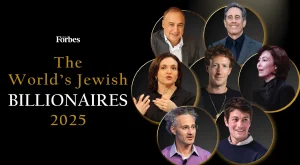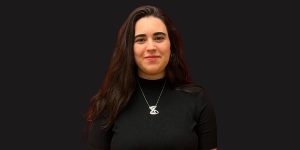“When people ask me what I do for a living, I like to say that I’m looking for aliens. It might not be accurate, but it’s definitely closer than what most people do about it”, says Yahel Sofer Rimalt with a smile. Yahel is a scientist and doctoral student at the Weizmann Institute in the field of experimental physics, specializing in the design of observational systems in astrophysics.
“We focus on designing instruments intended for discovering new planets outside the solar system, for characterizing and learning about them – from identifying the atmospheric composition of planets to measuring the architecture of planetary systems”, she adds. “I have the privilege of taking part in exceptional projects, including the new observatory we’re building these days in Nitzana, and a project built in partnership with the world’s largest universities – the GMT telescope. This is the most innovative and largest telescope in the world, which is being built these days in Chile”. In this project, Yahel collaborates with the best scientists from Harvard University, the Smithsonian Institute, the Carnegie Institute, and other institutions.
“The field we’re researching is relatively innovative and contains within it the most intriguing and basic questions like ‘How special is our solar system?’, ‘How special is Earth?’ and the question of all questions – ‘How special is the existence of life on Earth?'”.
From a young age, Yahel loved nature, but over the years she discovered an interest in the arts. She studied at the Thelma Yellin School of Arts in the classical music track, and later in the film track at Blich High School. After a year of national service, she enlisted in the Nahal Brigade, where she served as a soldier-teacher in Ofakim and Lod.
“Suddenly I felt very ‘ordinary'”
“Towards the end of my service I felt that something wasn’t complete”, Yahel recounts. “I knew I would return to the world of education, and didn’t give up on the aspiration to influence and change, but the urge to go and study arose in me”. She studied for a bachelor’s degree in physics and neuroscience at Bar-Ilan University, a master’s degree at the Weizmann Institute, and continued on the doctoral track.
“When I arrived at the Weizmann Institute, I experienced a severe crisis. Until then, I was used to being ‘the best’ – the one who gets the highest grades and the one who explains to friends from studies what happened in the last lecture. Suddenly I felt very ‘ordinary’. It shook me a lot, my confidence and my perception of myself. Today I’m very happy for the privilege of being surrounded by so many brilliant researchers and partners.
“One of the most exciting moments I’ve had in the context of the research happened actually with the high school students I mentor as part of the Alpha program at the Davidson Institute. As part of the program, the students conduct scientific research in a project under my guidance. The project I chose focused on searching for new planets. The highlight was when I traveled with the students to the new observatory and we conducted observations with the ‘LAST’ telescope throughout an entire night. To be honest, it was supposed to be no more than an experience. To my complete surprise, the students processed the images and found a signal of a new planet!”.





